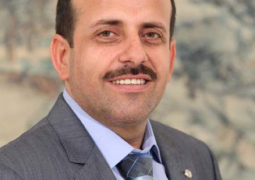The
sight of smallholder farmers using smartphones to access bespoke information on
pesticides, or diagnose crop disease, would once have been unthinkable. But one
artificial intelligence (AI)-based app that allows farmers to do this has been
downloaded almost 10 million times, with users uploading 20,000 images daily.
Digital
technology is transforming agriculture, along with every sector of development
from health and education to urban planning and conservation. Now, so-called
frontier technologies such as AI offer even greater potential.
But
will AI live up to the hype? And what are the risks of its rapid rise in
development settings?
In
this Spotlight, we look at some of the ways in which AI is being used for social
good and economic development in Africa, Asia and Latin America, and the
challenges this technology presents.
In
Latin America, scientists, researchers and entrepreneurs are using AI for a
host of health applications – predicting dengue outbreaks, or psychiatric
disorders, or diagnosing Alzheimer’s. “AI will change the whole of medicine,”
says Santiago Miriuka, a researcher for Argentina’s National Scientific and
Technical Research Council.
But
researchers also underline the need for more coordination and investment in
these technologies and say real-world applications are still lacking.
In
Senegal, authorities are pioneering “smart cities” as a means of tackling
burgeoning urbanisation, with AI used to control transport, waste management
and even care services. But poor connectivity is a huge obstacle to the
emergence of these intelligent cities across the continent, according to AI
researcher Seydina Moussa Ndiaye.
While
smartphones may seem ubiquitous, mobile and data networks are still inadequate
in many low-income countries, meaning many AI applications are a non-starter.
This is a major challenge for organisations like India-based non-profit
Wadhwani AI, which develops AI programmes for farming and healthcare, to tackle
cotton pests, TB and low birthweights.
A
joint report on AI in public service delivery by the UN Economic and Social
Commission for Asia and the Pacific (ESCAP) and Google published this month
makes the same point. It highlights the importance of public private
partnerships to bring industry knowledge and expertise to government
initiatives. Governments must develop frameworks to regulate these partnerships
and increase public access to information on AI projects, it says. And these
projects must be customised to their cultural, linguistic and organisational
settings.
AI
technology allows for vast amounts of data collection, for example. But what is
done with this data and how can ordinary people be protected from its misuse?
Regulation
is a word that comes up time and again when talking to experts about AI in
development. It is an issue which is being grappled with worldwide, but
low-income countries are particularly vulnerable to the lack of regulation in
this fast-moving field.
A
Guest Editorial



